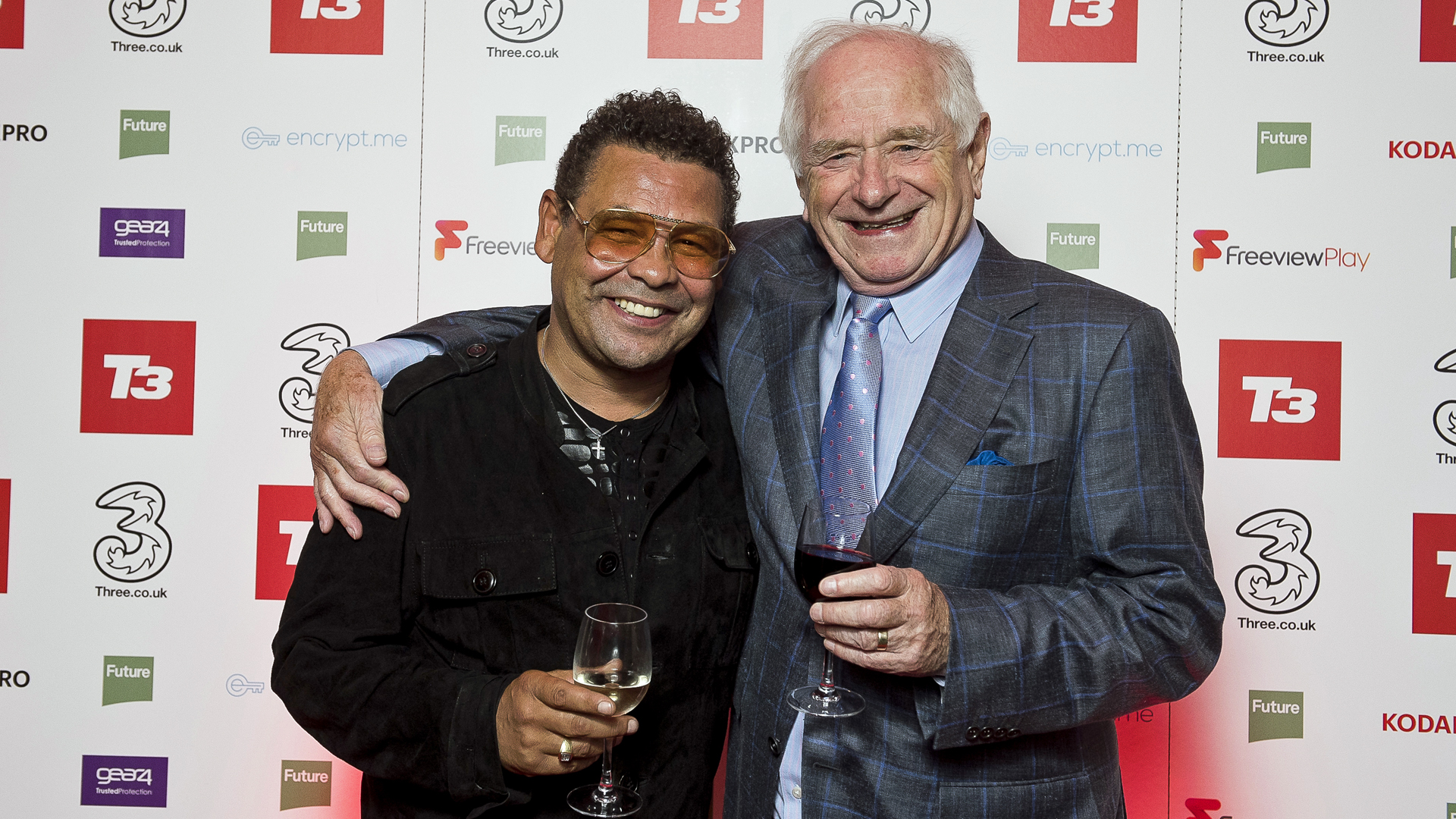
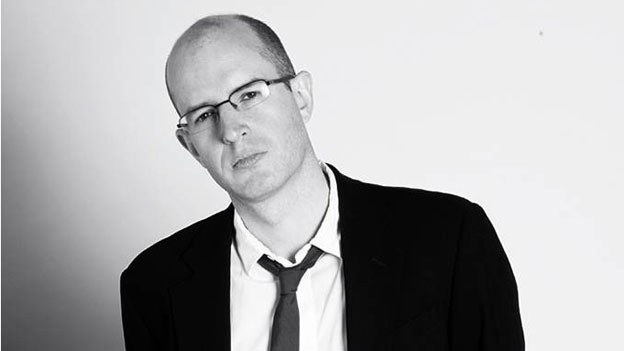
Broadcasting legend and author Johnny Ball's science shows, from Think of a Number to Johnny Ball Reveals All, made him an icon to a generation of TV viewers in the 1970s and '80s. Indeed, his uniquely frenetic presentation style and willingness to present just about anything even remotely science-based to kids made him part of a golden age of children's TV.
And let us tell you, readers: Johnny is still just the same today. The original transcript of this Q&A runs just short of the length of the Bible.
We caught up with our Tech Personality award winner to talk studio health and safety – or lack of it – future-thinking and living with today's technology. His latest book, Wonders Beyond Numbers: A Brief History of All Things Mathematical, is out now, published by Bloomsbury.
- Gary Numan talks tech
- The best 4K televisions you can buy
- Best barbecues; please don't set yourself on fire
T3: What are some of your fondest memories of creating kids' TV?
JB: We were not scared of doing anything. When we did a programme on jewellery, I had a quarter of a million pounds’ worth of jewellery just for the last shot. It was the greatest insurance for any one event that the BBC ever took out. We said we were doing it on a Sunday, and at the last minute we switched it to Saturday, in case there was anybody who was planning to raid us, do a heist or anything.
So we made the programme, not a problem, but thieves actually broke into the BBC offices on that day… and stole all the computers.
T3: If only they knew… Think of a Number was very adventurous for a pop science show for kids.
JB: Oh, it was lovely. We were so adventurous. When we did fire, we had Evo-Stik, you lace it on the walls, on these asbestos walls, and you light it, and it burns tremendously. There were gonna be six flames licking round me, with the walls on fire, and me coming out of this hell.
Sign up to the T3 newsletter for smarter living straight to your inbox
Get all the latest news, reviews, deals and buying guides on gorgeous tech, home and active products from the T3 experts
So we’re all ready, and I said, ‘And ten seconds… five,’ and they lit everything. I said, ‘No, no!’ – it was the cue for the titles – but they’d lit it. We had 20 seconds before we could start. I’m standing in an inferno for 20 seconds, because we couldn’t mount it again, we couldn’t do anything. We had to go with it. Nearly fried me alive.
T3: Maybe you wouldn’t be able to do that nowadays. Something about setting fire to Evo-Stik in an asbestos box…
JB: Right, you definitely wouldn’t be able to do it now, and that’s the tragedy. Well, they said we couldn’t do it then, but we caught the BBC studio safety officer in the canteen when we were doing the fire, and we said, ‘Gavin, what are you doing next Thursday? We're shooting in Bristol.’ He said, ‘Oh, yeah, I could come down to Bristol.’ I said, ‘No, no, no, Gavin, what we’re saying is, ‘Whatever you do next Thursday, do not come anywhere near the studio in Bristol!’’
T3: Did you ever dream what technology might be like in 30 years’ time, the kind of technology we have now?
JB: I do not accept technology until it’s acceptable. I don’t go, ‘Oh, there’s a wonderful new idea here.’ I don’t go with that at all. I wait. I use smartphones and tablets; I use things that are expedient, and things that work very well. I’m a great advocate for technology, for choosing the right ideas. I want a simple life where I’m in control of everything I do.
T3: What computer do you use to write your books on?
JB: Oh, I've no idea… It's Windows, not an Apple. I still use WordPerfect instead of Word. The journalists who broke the Watergate story used that, do you remember it?
T3: You’re not somebody who’d describe themselves as a silver surfer, then?
JB: I mean, Google is wonderful. You can Google absolutely anything. I’ve just written a book – do you know I’ve got a book coming out?
T3: I do know! You told me on email: Wonders Beyond Numbers: A Brief History of All Things Mathematical.
JB: Yep, it’s a history of mathematics. Well, it’s a very rare bird, a history of mathematics. There are very few of them. But I want this to be the most readable. Accurate but brief, and multifaceted but infinitely readable. And I’ve made a stick of it it. It’s taken four years. It's something I’ve wanted to do for years and years, and at last I’ve been able to do it, you know. Whether it’ll be a success or not, you know, we wait and see, but I don’t think I’ve blinded anybody with science at any time in the book. And if you can do that with a history of maths without really blinding people with science, then that’s going some.
T3: Essentially you’re an optimist about technology and its future?
JB: I am an optimist… I’ve been an optimist for nuclear power, and I know that nuclear power can solve a lot of problems, although this reactor at Hinkley Point, I’ve withdrawn support for that. I think it’s just too expensive and crazy.
In the ’90s, somebody from the local university came onto me and said, ‘Johnny, we’re thinking of marketing 3D printers. Would you like to come on board?’, and I said, ‘I think you’re too early. There’s not that many things you need a 3D printer for that are essential - it’s easier to buy it.'
But now I have a model from BA Systems, a chess rook with a spiral staircase inside it, which couldn’t have been done any other way than three-dimensional forming.
T3: You can print out an entire gun these days, so I guess that’s progress.
Yeah. Yeah, I mention a few things in the book. I mention Gore-Tex, because I worked for Gore-Tex. That’s an incredible thing, you know.
Technology provides jobs, provides the equipment we use, provides everything. The future is brighter than any of us can even imagine. You just cannot put into words what the future is going to be like. But it’s got to be proven. It’s not the technologically more brilliant decisions, it’s the economically more viable and more sound decisions that we must follow.
Duncan is the former lifestyle editor of T3 and has been writing about tech for almost 15 years. He has covered everything from smartphones to headphones, TV to AC and air fryers to the movies of James Bond and obscure anime. His current brief is everything to do with the home and kitchen, which is good because he is an excellent cook, if he says so himself. He also covers cycling and ebikes – like over-using italics, this is another passion of his. In his long and varied lifestyle-tech career he is one of the few people to have been a fitness editor despite being unfit and a cars editor for not one but two websites, despite being unable to drive. He also has about 400 vacuum cleaners, and is possibly the UK's leading expert on cordless vacuum cleaners, despite being decidedly messy. A cricket fan for over 30 years, he also recently become T3's cricket editor, writing about how to stream obscure T20 tournaments, and turning out some typically no-nonsense opinions on the world's top teams and players.
Before T3, Duncan was a music and film reviewer, worked for a magazine about gambling that employed a surprisingly large number of convicted criminals, and then a magazine called Bizarre that was essentially like a cross between Reddit and DeviantArt, before the invention of the internet. There was also a lengthy period where he essentially wrote all of T3 magazine every month for about 3 years.
A broadcaster, raconteur and public speaker, Duncan used to be on telly loads, but an unfortunate incident put a stop to that, so he now largely contents himself with telling people, "I used to be on the TV, you know."
-
 I loved the Ressence Type 7 at Watches and Wonders – but the real gem has lurked in its catalogue for six years
I loved the Ressence Type 7 at Watches and Wonders – but the real gem has lurked in its catalogue for six yearsYou've never seen a watch like this
By Sam Cross
-
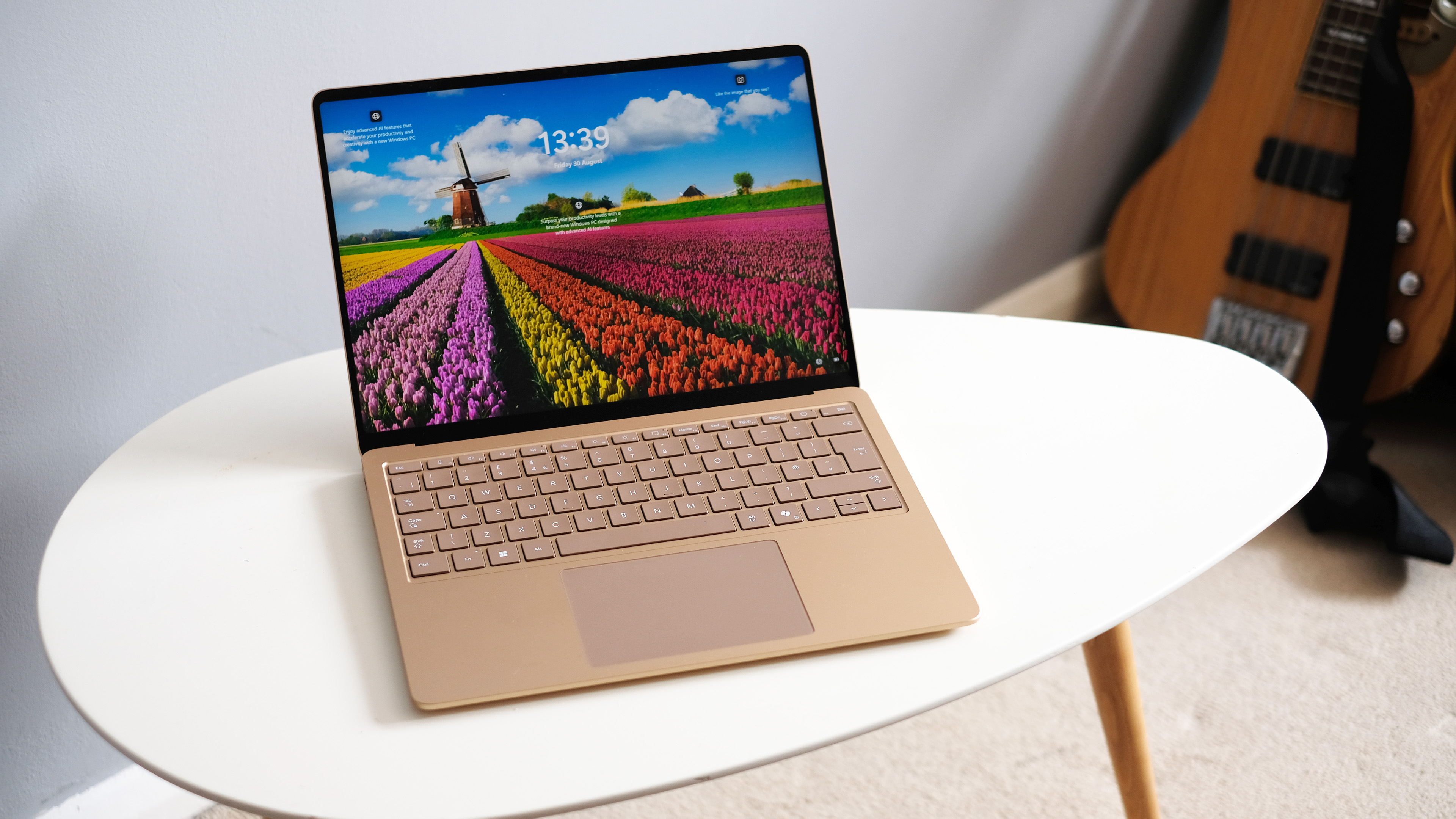 I tried a Snapdragon feature that's a game-changer for Netflix, Amazon and more
I tried a Snapdragon feature that's a game-changer for Netflix, Amazon and moreMoises Live can isolate and enhance audio in real-time using the Elite X's NPU
By Mike Lowe
-
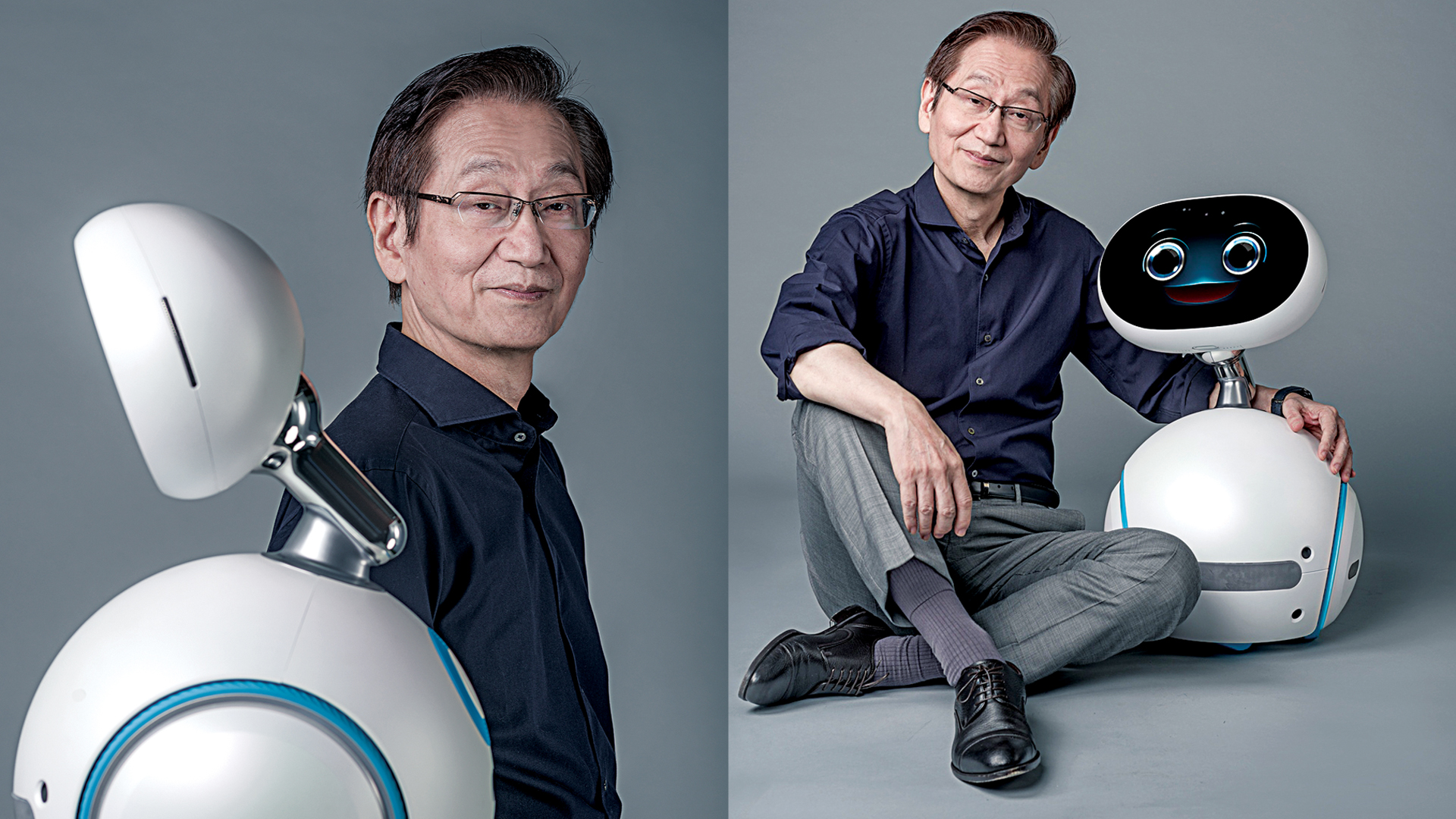 Jonney Shih of Asus wants to put a robot in your home
Jonney Shih of Asus wants to put a robot in your homeThe Lifetime Achievement Award winner at the T3 Awards isn't just about laptops and phones, as he told us in a typically wide-ranging and enthusiastic chat
By Duncan Bell
-
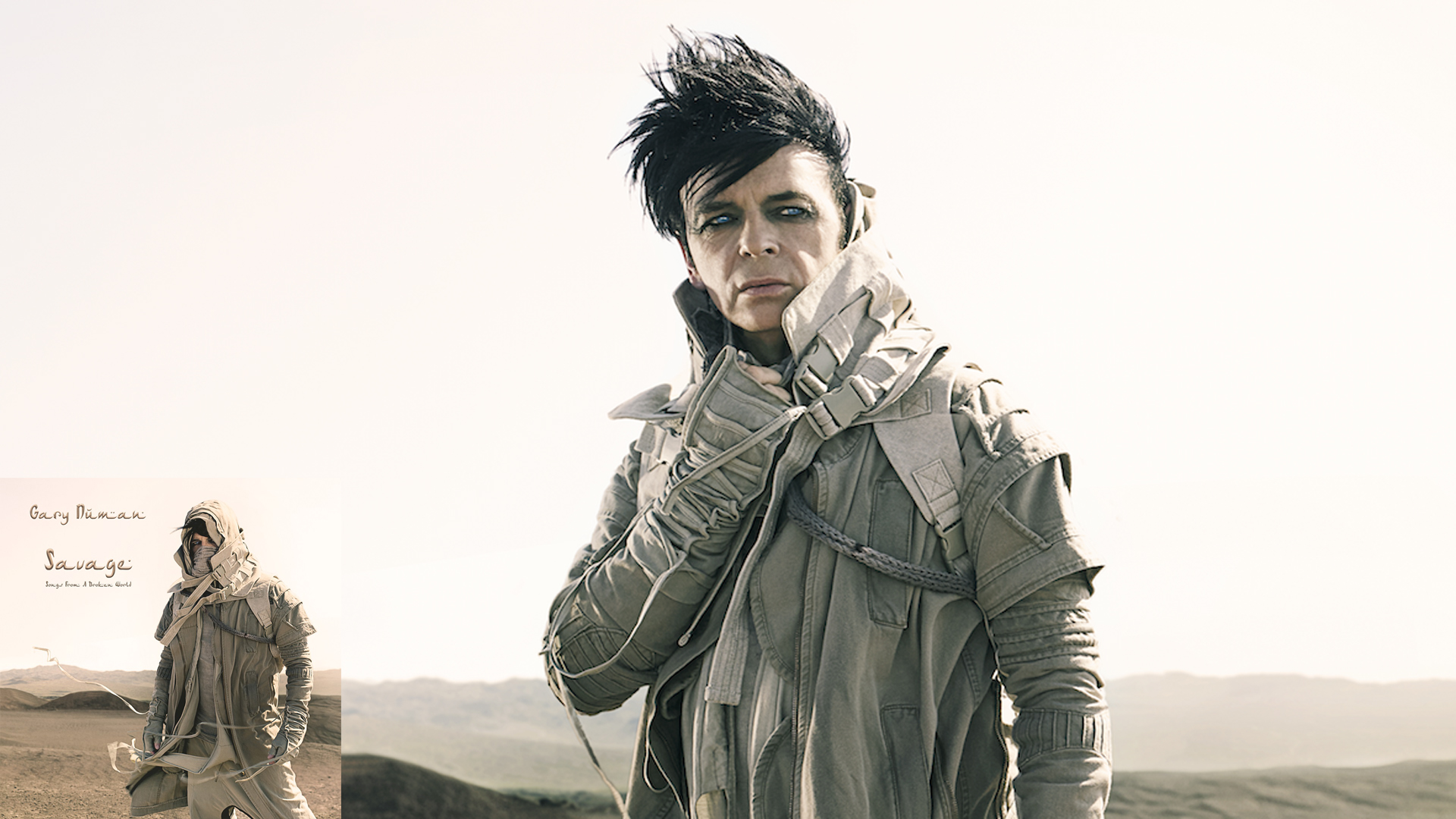 Gary Numan, T3 Tech Legend on why he doesn't really mind machines taking over and why his rock star mates all used to hate him
Gary Numan, T3 Tech Legend on why he doesn't really mind machines taking over and why his rock star mates all used to hate himInterview Last week: T3 Award winner. This week: first top 10 album since 1982. Coincidence?
By Duncan Bell